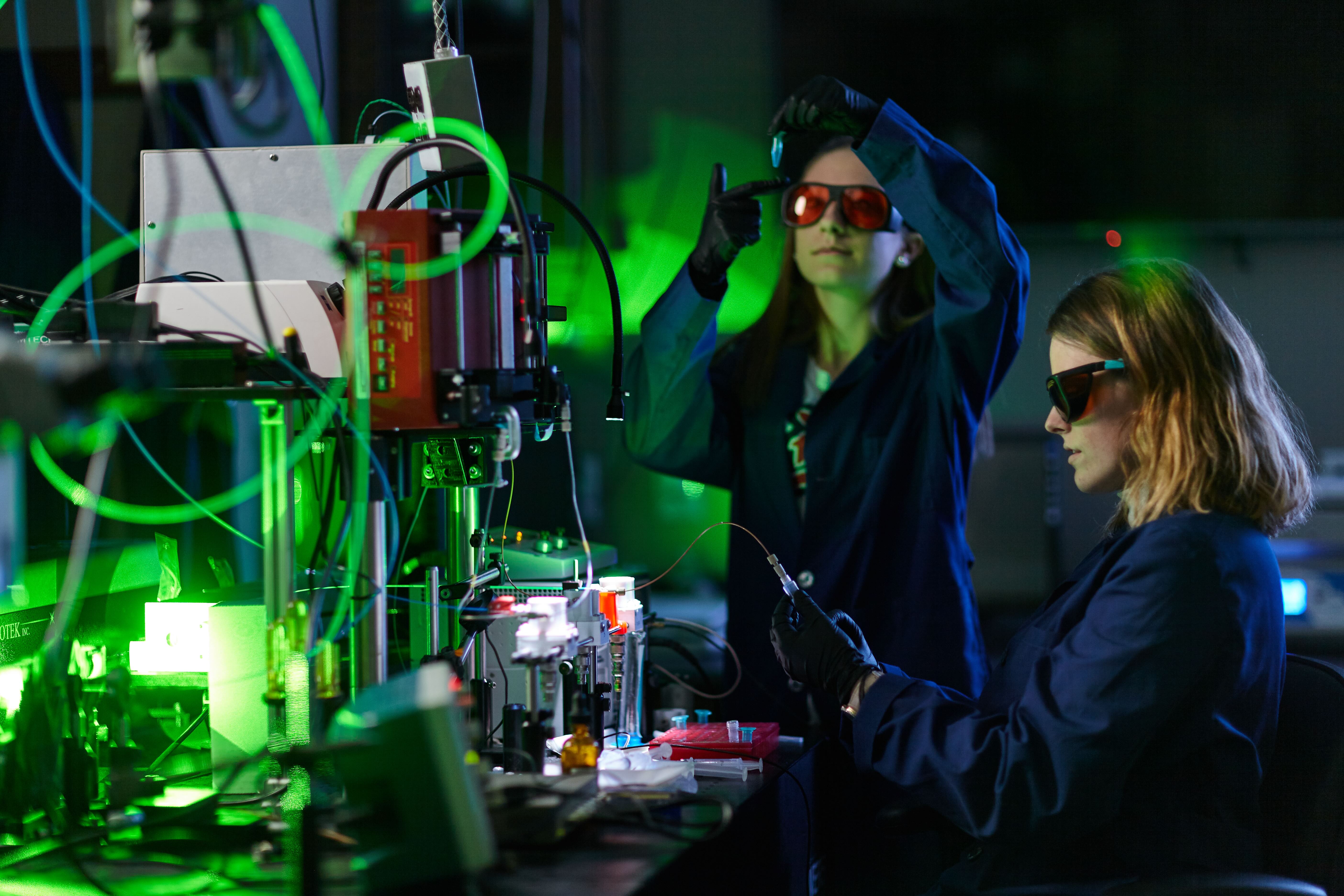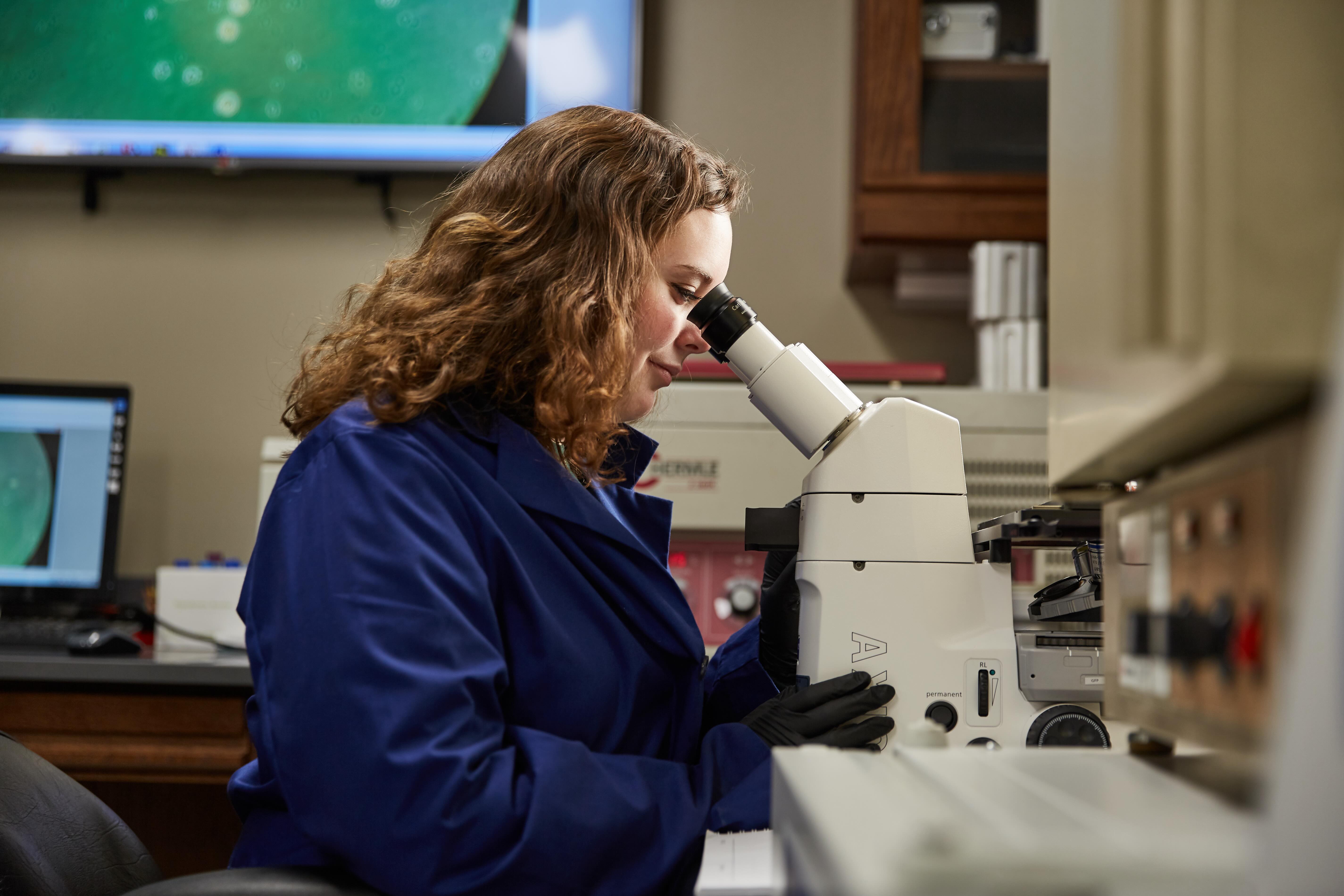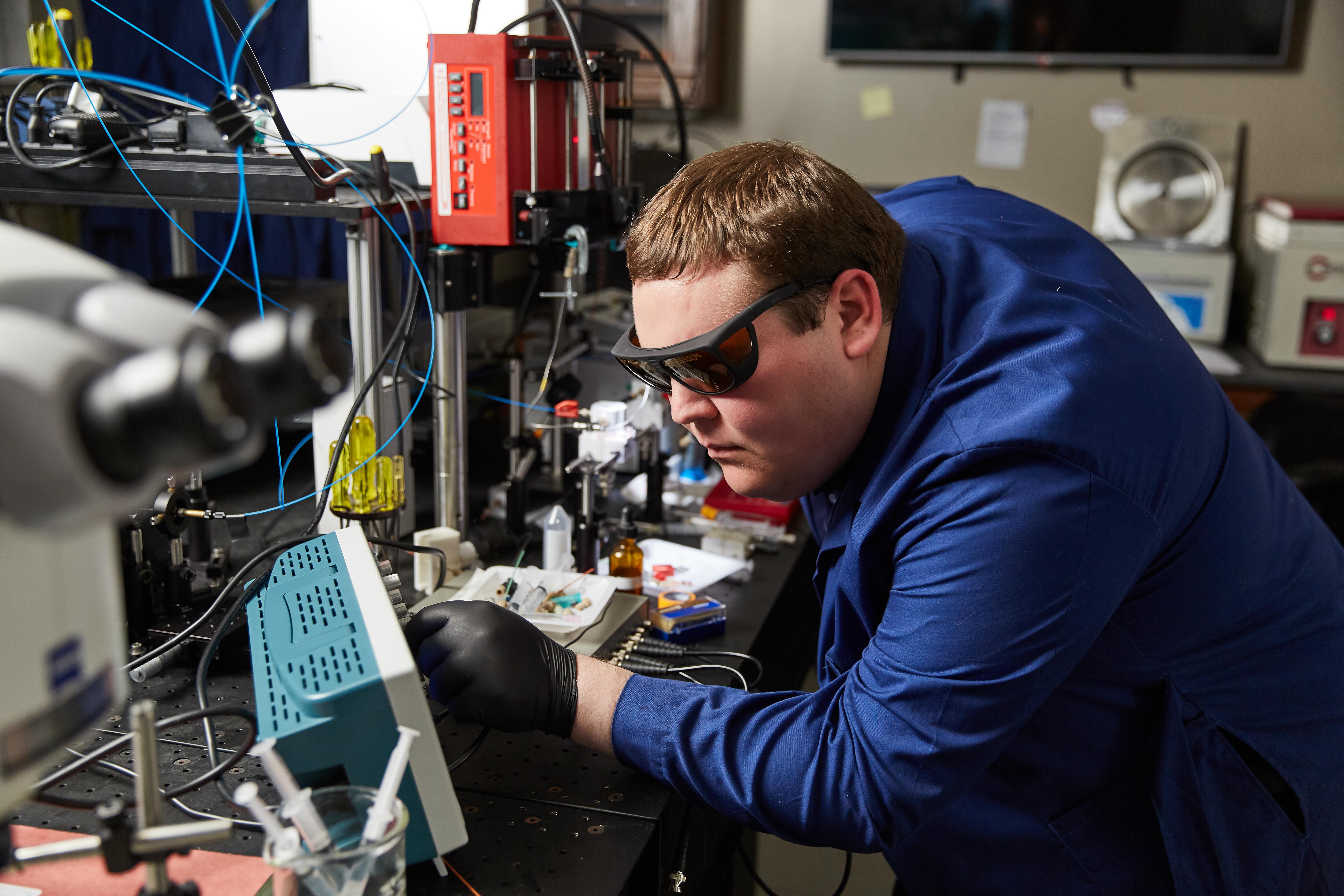Biomedical Engineering BS
The Bachelor of Science in Biomedical Engineering program prepares you to improve human health through specialized areas such as biomedical optics, biomaterials, orthopedic biomechanics, biophysical interactions, drug delivery and biosensor development. You’ll build a strong foundation in engineering principles while gaining hands-on research experience with real-world applications in oncology, orthopedics, ophthalmology and dermatology. Throughout the program, you’ll strengthen your technical skills in mathematics, programming and medical device design, while also developing critical thinking, problem-solving, communication and ethical leadership skills—ensuring you’re ready to take on the complex challenges of the biomedical field.
The demand for biomedical engineers is growing rapidly both nationally and in Pennsylvania, with the U.S. Bureau of Labor Statistics projecting above-average growth through 2031. At Duquesne, you’ll be equipped to launch a meaningful career in biomedical industries, pursue advanced degrees and continue developing your expertise through lifelong learning. You’ll gain the ability to design innovative solutions that advance public health and safety, analyze and interpret data to make informed engineering decisions and collaborate effectively in interdisciplinary teams.
Program Information
Duquesne’s Bachelor of Science in Biomedical Engineering program prepares you to improve human health through hands-on research, technical innovation and interdisciplinary collaboration. You’ll gain the skills to design medical devices, advance public health and launch a meaningful career in the rapidly growing biomedical field.
Program Type
Major
Degree
Bachelor's
Academic Department
Engineering
Duration
4 year
Required Credit Hours
133
Modality
In-Person
Contact me, your Enrollment Coordinator, to get started on your engineering path.I Can Help You Reach Your Bigger Goals!
Lexie Vincenty

Hear From Students
Start Strong. Research Early. Make an Impact.

Start Researching From Day One
Beginning in your first year, you’ll work closely with faculty on scientific research and engineering design projects—often earning co-authorship in top publications, including the Chemical Engineering Journal, the Journal of Engineering, and the International Journal of Frontline Research in Engineering and Technology (IJFRET).

Get Involved Outside the Classroom
Join a vibrant community of STEM enthusiasts through our 25+ student clubs and organizations. With support from faculty and staff, you can connect with like-minded peers, lead events and develop your leadership and professional skills.

Summer Undergraduate Research Program
Each summer, you can take part in Duquesne's 10-week Undergraduate Research Program (URP), where you'll conduct hands-on research on funded projects supported by government agencies, non-profit organizations and corporate foundations. These projects often extend beyond campus to include partnerships with experts from major research institutions and industry.
Duquesne University is nestled in the heart of Pittsburgh, a city with 90 diverse
neighborhoods where everyone can be themselves. Repeatedly ranked among the most livable
cities, Pittsburgh offers a vibrant mix of opportunities just a few blocks from campus,
including Fortune 500 companies, nonprofit organizations, and startups for work —
and three major league sports teams for play! The first dual Bachelor’s program in Biomedical Engineering and Nursing in the U.S.
allows you to gain clinical expertise, tackle real-world problems and develop technologies
that improve patient care and support nurses in hospitals, outpatient settings and
beyond—all in just five years. Gain hands-on experience, access cutting-edge research facilities and develop the
skills to design innovative biomedical devices, lead research and improve health outcomes
with the MS in Biomedical Engineering. Our curriculum consists of 133 credit hours. Alongside fundamental math and science
courses, students will engage in hands-on laboratory experiences and participate in
the Bridges Common Learning Experience. The engineering component of the program includes
52 credit hours and includes a range of specialized courses carefully designed to
equip students with the necessary skills and knowledge for their future careers. Please note that specific courses may be subject to change.Study In A Thriving Location
Expand Your Biomedical Engineering Horizons

Dual Bachelor’s in Biomedical Engineering and Nursing

Master of Science in Biomedical Engineering
Curriculum
ABET accreditation ensures that our programs meet rigorous global standards for engineering
education, giving students a strong foundation to innovate, pursue professional licensure,
and succeed in careers around the world. It also enhances employment opportunities
and eligibility for federal aid and international recognition.
Learning Outcomes
Accreditation





